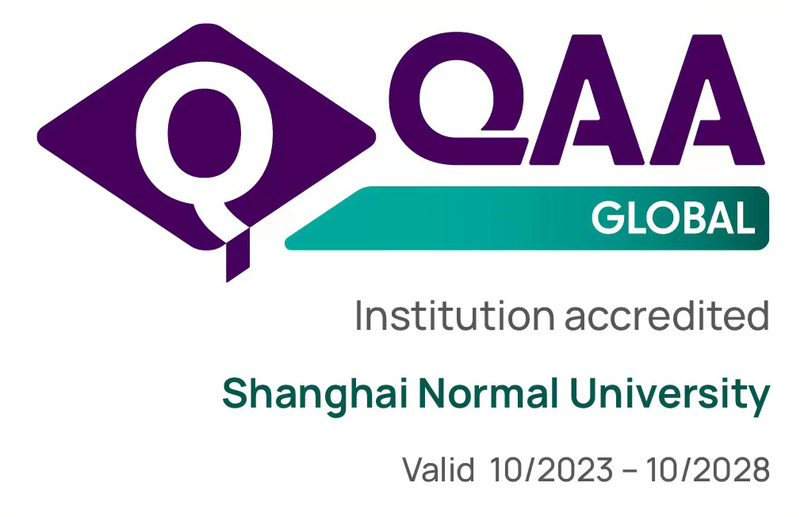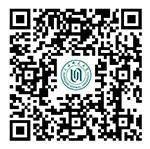每年农历五月初五是端午节,又称重五节(英译the Double Fifth),这一重要的民间节日在我国已广泛流传了2000多年。每逢端午节,人们举行各种庆祝活动,其中不乏众多风俗习惯,如吃粽子、赛龙舟、插艾草、做香囊荷包、喝雄黄酒或为小孩涂抹雄黄酒等。关于端午节的起源,传说很多,如纪念屈原说、纪念伍子胥说、纪念曹娥说、起于三代夏至节说、恶月恶日驱避说、吴月民族图腾祭说等等。至于真正的来源,那就见仁见智了。
散居世界各地的华裔群体依然保持着这一习俗。亚洲诸多国度也有类似的节日,如日本、韩国、越南、泰国等。其实,很多西方人对中国的端午节并不陌生,尤其对端午习俗表达的自然性和渊源说法的多样性,特别感兴趣,甚至也会主动加入庆祝活动。端午节以及与端午相关词语在英译时,约定俗成的译法更多一些。
关于“端午节”的英语说法,最常见的是(the) Dragon Boat Festival(龙舟节),或者(the)Dragon Boat Day(龙舟日),前者更常见。例如2013年6月11日路透社(Reuters)有一则新闻的标题是“Hong Kong shares seen weaker ahead of Dragon Boat holiday”(香港股市在龙舟节前见弱)。
2008年6月25日英国《卫报(The Guardian)》新闻说“An explosion of poetry ... Lighting fireworks to celebrate the newly-recognized Dragon Boat festival in memory of Qu Yuan. ”(一场诗歌火爆……燃放鞭炮庆祝刚被认可的纪念屈原的龙舟节。)
2013年6月12日《纽约时报(New York Times)》有一新闻,题为“China Celebrates First Dragon Boat Festival in Space”(中国首次在太空庆祝龙舟节)其中说到“Whenever Chinese astronauts blast off into space,there’s interest here on earth in China about what they will eat. As the saying goes:‘for the people,food is heaven.’… that the two male and one female astronauts will eat ‘dousha zong,’ or sticky rice dumplings stuffed with sweet red beans and wrapped in green leaves,usually known as ‘zongzi’. Today is Dragon Boat Festival in China,a public holiday when the celebratory,triangular food,stuffed,wrapped and boiled by millions of families at Home,is widely consumed.”(无论中国宇航员何时发射升空,地面上的国人总是好奇,宇航员们吃什么。正如俗话所说“民以食为天”……两位男宇航员和一名女宇航员将吃“豆沙粽子”,即塞满甜红豆裹着绿叶的糯米饭团,一般称为“粽子”。今天是中国的龙舟节(即端午节),这是一个公共节日,成百万家庭在家里填塞、包裹、水煮一种用来庆贺的三角形食物,广泛享用。)
2013年6月12日英国广播公司(BBC News)有一条新闻标题为: China prepares for Dragon Boat Festival(中国准备过端午节)新闻说“People across China are getting ready to celebrate the annual Dragon Boat Festival which falls on the fifth day of the fifth month of the Chinese lunar calendar.The festival pays tribute to the ancient poet Qu Yuan who,legend has it,drowned himself as a protest against being falsely accused of treason.(全国各地民众准备庆贺一年一度的端午节,是日为中国农历五月五日。这个节日是纪念古代诗人屈原,传说为反抗被诬陷叛国罪,他投江自尽。)
由于端午节是在农历五月初五,“端午”亦称“端五”,“端”的意思和“初”相同,称“端五”也就如同称“初五”。端五的“五”字又与“午”相通,按地支顺序推算,五月正是“午”月。又因午时为“阳辰”,所以端五也叫“端阳”。五月五日,月、日都是五,故称重五,也称重午。所以,英语也可译成the Double Fifth(端五节)。此外,端午还有许多别称,如夏节、浴兰节、女儿节,天中节、地腊、诗人节等。这些说法,对于外国人而言,比较陌生,也难于解释。
因此,直接用汉语拼音译成(the)Duanwu Festival(端午节)在外媒上也不少见,如2017年5月25日《卫报》赛龙舟新闻照的文字说明为:Participants compete in a dragon boat race held to celebrate the Duanwu Festival.(参与者们在庆贺端午节的龙舟赛中进行竞争。)
2011年6月6日BBC报道说“China has celebrated Duanwu,a national holiday on 6 June,with a dragon-boat race in Beijing.Participants make offerings to the water,hoping to please the spirits and fish so they will not harm the body of the scholar Qu Yuan,whom the festival commemorates. According to legend,2,000 years ago Qu Yuan drowned himself for honor after being banished from court by corrupt officials.(中国在北京举行龙舟赛,庆祝6月6日的全民节日,端午。参与者向水献祭,期望取悦神灵和鱼儿,使它们不要伤害这一节庆所纪念的学者屈原的大体,他被腐官诬告后放逐。)
中国的英语媒体对端午节的两种译法均可看到,如2018年6月20日《中国日报(China Daily)》报道“Dragon Boat Festival or Duanwu Festival in Chinese,is a traditional festival which falls on the fifth day of the fifth month in the lunar calendar to honor great Chinese poet Qu Yuan (340-278 BC).”(龙舟节,或中文称之为端午节是在农历第五月的第五天,这个传统节日是纪念伟大的中国诗人屈原【公元前340-278年】。)
关于粽子的英译,在改革开放以前,中文的人名、地名、部分物名在英语中都是按威妥玛音标来拼写的,例如“A very popular dish during the Dragon Boat festival is tzung tzu. This tasty dish consists of rice dumplings with meat, peanut, egg yolk, or other fillings wrapped in bamboo leaves.(在端午节时受欢迎的食物就是粽子,粽子是以米包着肉、花生、蛋黄及其他材料,再以竹叶包裹。《有道词典》),但在官方英语媒体则大多借用“粽子”的汉语拼音,例如2018年6月18日CGTN(中国国际电视台)报道说 “Chinese restaurant in Chicago offers Zongzi to mark Dragon Boat Festival.”(芝加哥的中国餐馆出售粽子来纪念龙舟节。)
“rice dumpling”的译法也不少见,时常与“汤团”混为一个名称。例如《中国日报(China Daily)》 2018年6月18日对一幅照片作如下解释 “People learn how to make Zongzi, or rice dumplings, at a workshop in a restaurant in Manhattan, New York City, the United States, on June 16, 2018. A famed restaurant in New York City turned itself into a workshop over the weekend for learning to make rice dumplings to celebrate the Dragon Boat Festival, a traditional Chinese holiday that commemorates the death of an ancient patriotic poet Qu Yuan.”(2018年6月16日人们在美国纽约曼哈顿一家餐馆的工作坊里学习如何做粽子,或称米团。一家有名的纽约餐馆在周末变成工作坊,学习做米团(即粽子),庆贺龙舟节,这是个纪念古代爱国诗人屈原的祭日。)又如 2018年6月16日《中国日报》有一报道说“I love the rice dumpling with .... pork and chestnuts filling. This is the absolute best to eat with a cup of thick Chinese tea. Absolute heaven on earth. Or, the sweet rice dumpling (made from glutinous rice) dipped into that brown sugar sauce. And that bamboo leaves used to wrap the dumplings. They smell wonderful.(我喜欢粽子……猪肉和栗子馅的。吃粽子并喝着一杯浓郁的中国茶,这是顶级的美食,人间天堂。或者蘸着红糖汁吃甜粽子(用糯米做的)。竹叶包裹粽子,那气味棒极了。)
与端午节相关的其他词语,较为流行的《有道词典》还是按威妥玛音标来拼写实施英译,如“艾草”译成Ay Taso,“香囊荷包”译成Hsiang Bao。“雄黄酒”则考虑到它化学成分,译成realgar(二硫化二砷)wine。
碰巧笔者看到2018年6月8日《中国日报》在一篇报道中提到了香囊荷包,“Fragrant sachets, filled with herbs used in traditional Chinese medicine, have become popular products in China as the Dragon Boat Festival draws near. Wearing fragrant sachets is a tradition to celebrate the Duanwu Festival, or Dragon Boat Festival, which falls on the fifth day on the fifth month on the lunar calendar. As an intangible cultural heritage, the craftsmanship of making fragrant sachets has helped many people increase their income.(随着端午节的临近,用传统中医草药填充制成的香包在中国成为流行物。佩挂香袋是一种庆贺农历五月初五端午节(龙舟节)的传统。作为非物质文化遗产,香囊制作工艺使许多人提高了收入。)











 徐汇校区:上海市徐汇区桂林路100号
徐汇校区:上海市徐汇区桂林路100号